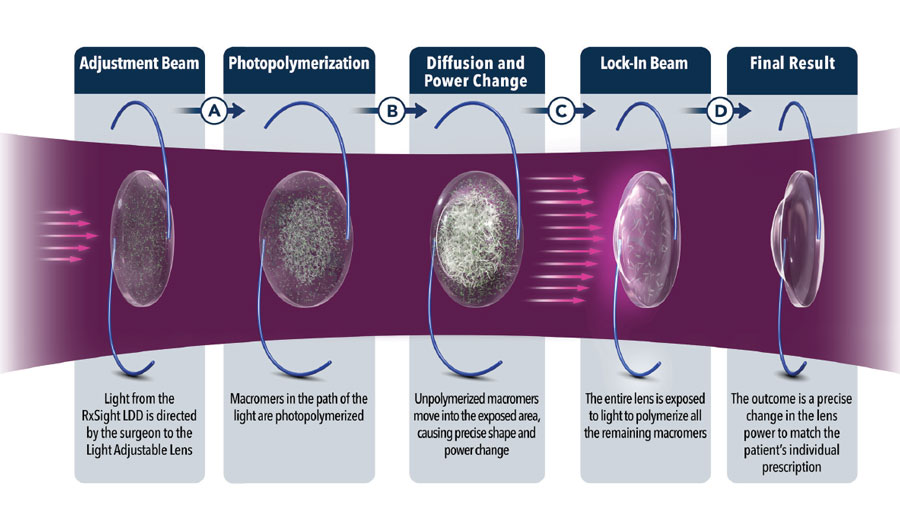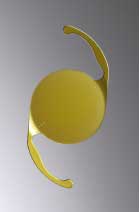
Cataract Surgery
Our Services
Cataract Surgery
The idea behind modern cataract surgery is quite simple: the surgeon removes the clouded natural lens and implants a new, clear lens in its place. Drs. Del Negro, Senft, and Glatman perform cataract surgery on an outpatient basis at Seashore Surgical Institute* and Hackensack Meridian Health Jersey Shore University Medical Center, both state-of-the-art surgical facilities. No hospital stay is required.
Currently there are two methods of performing cataract surgery: LASER and TRADITIONAL. Drs. Del Negro, Senft, and Glatman offer both to their patients. The first step is to evaluate the health of their patient’s eye and the extent of cataract progression. Specialized testing is performed. Ultimately, the impact that the decreasing vision is having on the patient’s life will determine the most appropriate procedure and type of IOL (Intraocular Lens) the doctor will recommend.

Laser Cataract Surgery
No matter what you value most in life – working, reading, golfing, watching your children or grandchildren, or just taking in the scenery – the level of enjoyment you get out of those activities is very dependent upon your sight. If your vision is clouded by cataracts, you may be limited in enjoying the things that are most important to you. Cataract surgery can significantly improve your quality of life.
That’s why we are excited to be the first eye surgeons in the area to offer Laser Cataract Surgery to provide our patients the opportunity to achieve their best possible vision.
CONTINUE READING ABOUT LASER CATARACT SURGERYWHAT IS THE LENSX® LASER?
The LenSx® laser is a femtosecond laser that gives Drs. Del Negro, Senft, and Glatman computer-controlled precision, allowing more accurate performance of some of the key steps of cataract surgery.
Using a variety of highly advanced technologies, the LenSx captures precise, high resolution images of your eye. To further enhance accuracy, a patient interface connects your eye to the image-guided unit so that the LenSx laser computer and the surgeon commanding it have precise, real time images of your eye at all times during the procedure. These images allow the surgeon to accurately guide the laser in performing cataract surgery with a level of precision not previously possible.

TOPICAL, NO-STITCH CATRACT SURGERY
(Traditional Cataract Surgery)
This means:
- No stitches
- No needles
- No eye patch
- No hospital stay
On the day of surgery, you may be given medication to help you relax, and the surgeon will numb the eye with eye drops. No injection is necessary and you will remain quite comfortable during the surgery. To prevent infection, the skin surrounding your eye will be cleaned, and strict precautions are observed to maintain a sterile environment.
The surgeon will use a microscope throughout the procedure. Only a very small (1/8 inch) incision is necessary because the surgeon will be using ultrasound energy to break up the lens and make it easy to remove. The surgeon then implants a clear lens in its place, and the incision seals itself closed naturally. No stitches are needed, and there are only a few restrictions on daily activities as healing takes place after surgery. No eye patch is necessary. Traditional cataract surgery is when this procedure is done without the use of the femtosecond laser.
Intraocular Lens Options
Do I have a choice of IOL (Intraocular Lens)?
During cataract surgery, the surgeon implants an intraocular lens to replace the natural lens removed due to the cataract. A monofocal lens is the traditional type of lens replacement. This is an excellent lens but is not designed to correct astigmatism or presbyopia therefore it cannot provide the patient with both distant and near vision and patients with astigmatism would likely need glasses for both distance and near to achieve their best vision. There are other options.
CONTINUE READING ABOUT INTRAOCULAR LENSESIs there an alternative to the standard replacement lens?
For many people, the answer is YES. Revolutionary technology makes it possible to take vision correction to a new level by restoring youthful ability to focus on objects at varying distances. If it is important for you to be less dependent on reading glasses or bifocals, you may want to consider an advanced technology replacement lens implant. These lenses are designed to provide sharper vision with less reliance on glasses or contacts.
Which replacement lens is right for me?
This question can be answered only after careful consideration of the health of your eyes, your individual lifestyle, and the demands of your occupation and hobbies. For cataract patients, the choice is between a standard lens plus glasses or an advanced technology replacement lens implant that may help them recapture a full range of quality vision with less dependence on corrective lenses.
Before advising you, your eye surgeon will want to know more about:
- The kind of work you do
- How many hours a day you read and what types of reading you do
- How many hours a day you spend using a computer
- The types of outdoor activities you enjoy
- Your hobbies, and whether you do close work like sewing or knitting
- How much driving you do at night
- Whether you like to travel
- How bothered you are by wearing glasses
Ultimately, the decision is yours. Ask yourself, “What would my life be like if I was less dependent on glasses?” If you opt for an advanced technology replacement lens implant, your surgeon will select the technology that best meets the visual demands you face.
*Drs. Del Negro & Senft have an ownership interest in Seashore Surgical Institute.
Request an Appointment
Our goal is to contact you by phone within 24 hours of submission. If you find yourself in an EMERGENCY situation, please CALL 732-774-5566 instead.








